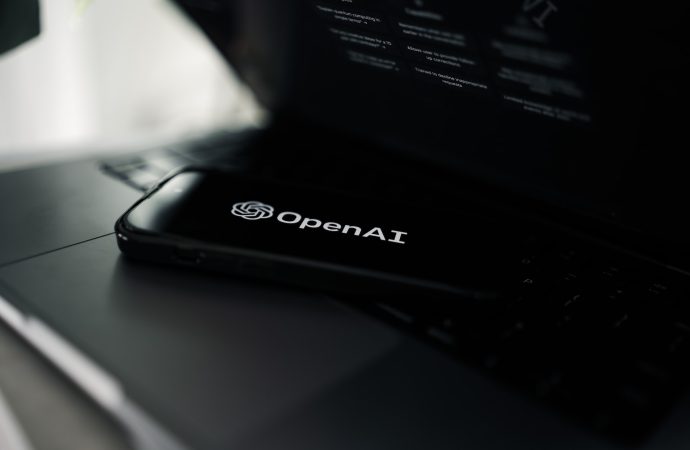Introduction ChatGPT, an exceptional creation in the realm of artificial intelligence (AI), showcases the rapid advancements in natural language processing. However, as we marvel at its capabilities, it is imperative to reflect on the ethical Serving implications that accompany its existence. In this article, we delve into the ethical considerations surrounding ChatGPT’s role in responsibly
Introduction
ChatGPT, an exceptional creation in the realm of artificial intelligence (AI), showcases the rapid advancements in natural language processing. However, as we marvel at its capabilities, it is imperative to reflect on the ethical Serving implications that accompany its existence. In this article, we delve into the ethical considerations surrounding ChatGPT’s role in responsibly serving humanity.
1. Potential Benefits and Risks of ChatGPT
The promise held by ChatGPT is immense, offering enhanced customer service, personalized recommendations, and improved information accessibility. Its proficiency in processing data and generating coherent responses opens Serving for language translation, content creation, and virtual assistance. ChatGPT exemplifies the boundless potential of human-machine collaboration. Yet, we cannot overlook the risks it brings, such as misinformation and manipulation, which can spread falsehoods and exacerbate fake news. The misuse of ChatGPT by malicious actors also raises concerns, as it can lead to harmful practices, including generating deep fakes.

Photo by Levart_Photographer on Unsplash
2. Ethical Implications: Navigating the Path Ahead
In the wake of ChatGPT’s capabilities, addressing ethical concerns becomes paramount. The responsibility to ensure responsible use falls on developers and society at large. Transparency, accountability, and fairness should guide ChatGPT’s development and deployment. Tackling biases and safeguarding privacy are crucial to Serving discrimination and protect sensitive information. A collaborative approach involving diverse perspectives is necessary to harness the potential benefits of ChatGPT while mitigating risks.
3. Ethical Frameworks for ChatGPT
To ensure responsible and ethical use of AI technologies like ChatGPT, several ethical frameworks have been proposed. Transparency, fairness, and accountability are key principles to be upheld. Aligning AI with human values and interests through a human-centered approach is crucial. The beneficence and non-maleficence principle emphasizes promoting well-being and avoiding harm in AI systems. However, implementing these frameworks comes with challenges, particularly in ensuring transparency when algorithms are complex and combating biases inadvertently present in AI due to training data.
4. Responsibility in Developing and Using ChatGPT
The responsibility for ChatGPT’s development lies with its creators, who must prioritize humanity’s best interests and consider potential consequences. Users also bear the responsibility of employing ChatGPT conscientiously, ensuring no harm is caused and respecting privacy and autonomy. Unethical development and use of ChatGPT could lead to severe ramifications, disseminating misinformation, harassing individuals, and manipulating public opinion, thereby endangering democracy and human rights. Ethical guidelines, rooted in transparency, accountability, privacy, and non-discrimination, are crucial for ChatGPT’s responsible development and use. Ethical training empowers developers and users with the necessary knowledge and skills to wield ChatGPT responsibly.
5. Addressing Bias in ChatGPT
Bias in AI systems, including ChatGPT, originates from human biases and systemic, institutional biases. Unaddressed bias poses ethical challenges, perpetuating harmful stereotypes and reinforcing inequalities based on race, Serving , and other characteristics. To combat bias in ChatGPT, understanding its origins and detection is crucial. Diverse data during training, transparent and interpretable algorithms, and inclusive collaboration help mitigate bias risks and promote equity.
6. Transparency and Accountability in ChatGPT
Transparency and accountability are essential for responsible AI development. Unraveling ChatGPT’s complex algorithms fosters understanding of its decision-making process. Addressing biases ensures fairness and inclusivity in its responses. Striving for explainability allows for evaluating the ethics of ChatGPT’s actions. Developers and users share the responsibility of ensuring ethical use, with developers embedding transparency and accountability from the start. Public scrutiny promotes transparent practices and holds developers accountable.
Conclusion: Shaping a Future of Responsible AI
In navigating the ethics of ChatGPT, we must balance its potential benefits with the risks it poses. Ethical frameworks, transparency, and addressing bias are crucial in ensuring responsible AI use. Collaboration among stakeholders is key to shaping a future where ChatGPT serves humanity’s needs while upholding our values. By fostering dialogue and committing to ethical development, we can harness the transformative power of AI for the betterment of society. A future where ChatGPT becomes a trusted ally, enhancing lives and reflecting shared humanity, is within reach.

















Leave a Comment
Your email address will not be published. Required fields are marked with *